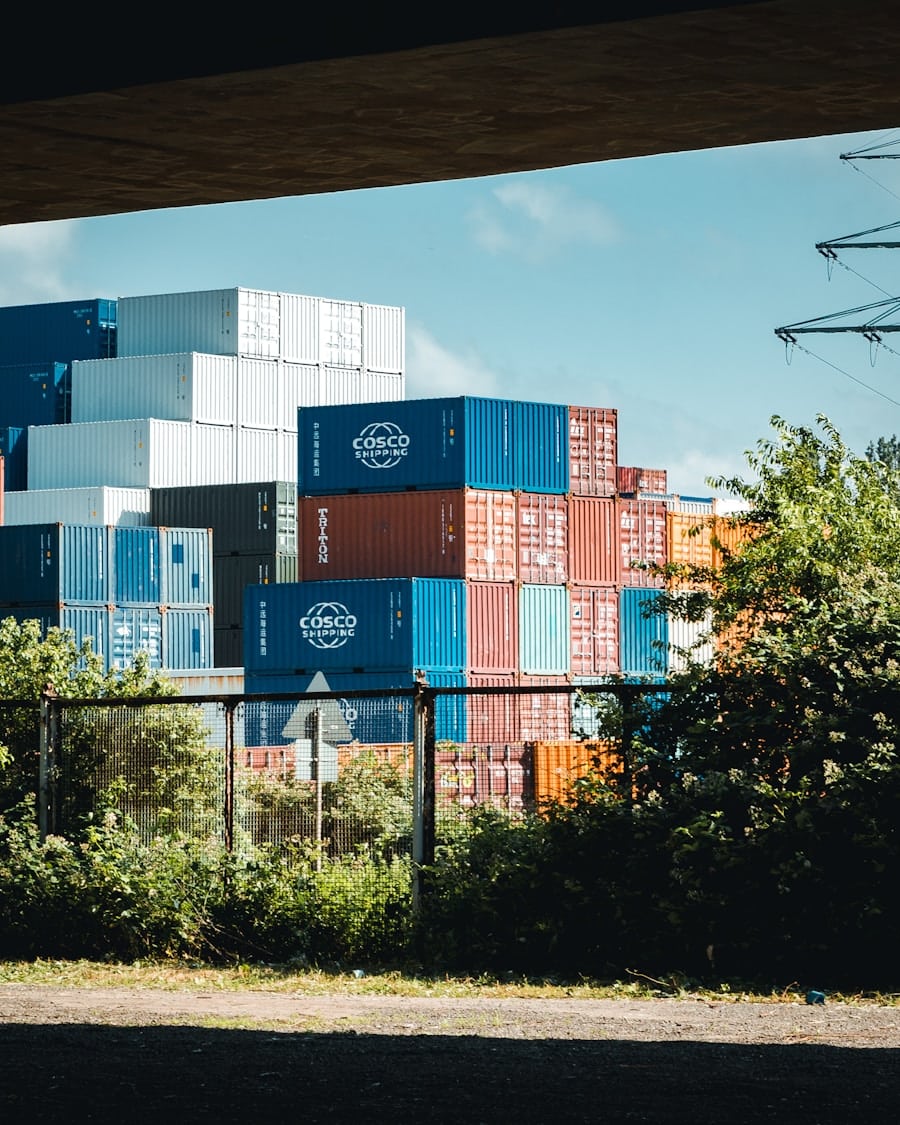The integration of artificial intelligence (AI) into supply chain networks marks a transformative shift in how businesses operate, manage resources, and respond to market demands. As global trade becomes increasingly complex, characterized by fluctuating consumer preferences, geopolitical uncertainties, and environmental concerns, the need for agile and efficient supply chain management has never been more critical. AI technologies, including machine learning, predictive analytics, and natural language processing, are being harnessed to optimize various aspects of supply chain operations, from procurement and inventory management to logistics and customer service.
AI’s ability to analyze vast amounts of data in real-time allows organizations to make informed decisions that enhance operational efficiency. For instance, AI can predict demand patterns by analyzing historical sales data, social media trends, and economic indicators. This predictive capability enables companies to adjust their inventory levels proactively, reducing the risk of stockouts or overstock situations.
Furthermore, AI-driven automation can streamline processes such as order fulfillment and shipment tracking, leading to faster delivery times and improved customer satisfaction. As businesses increasingly recognize the potential of AI, its role in supply chain networks is poised to expand significantly.
Key Takeaways
- AI is revolutionizing supply chain networks by optimizing processes and improving decision-making.
- Current challenges in supply chain management include demand forecasting, inventory management, and transportation optimization.
- AI plays a crucial role in creating sustainable supply chain networks by reducing waste, improving efficiency, and minimizing environmental impact.
- Implementing AI in supply chain management can lead to advantages such as cost reduction, improved customer service, and better risk management.
- Case studies of successful AI implementation in supply chain networks demonstrate significant improvements in operational efficiency and cost savings.
Current Challenges in Supply Chain Management
Lack of Visibility Across the Supply Chain
One of the most pressing issues is the lack of visibility across the supply chain. Many organizations operate with fragmented systems that do not communicate effectively with one another, leading to information silos. This lack of transparency can result in delays, miscommunication, and an inability to respond swiftly to disruptions.
Complexity of Global Supply Chains
Another significant challenge is the increasing complexity of global supply chains. As companies source materials from various countries and rely on multiple suppliers, managing these relationships becomes increasingly difficult. Factors such as varying regulations, cultural differences, and logistical hurdles can complicate operations.
The Need for Robust Supply Chain Strategies
The COVID-19 pandemic has exposed vulnerabilities in global supply chains, highlighting the need for greater resilience and adaptability. Companies that were overly reliant on single suppliers or specific regions faced significant disruptions when those sources were compromised. This reality underscores the importance of developing robust supply chain strategies that can withstand unforeseen challenges.
The Role of AI in Creating Sustainable Supply Chain Networks

AI plays a pivotal role in fostering sustainability within supply chain networks by enabling organizations to optimize resource utilization and minimize waste. One of the key areas where AI contributes is in demand forecasting. By leveraging machine learning algorithms that analyze historical data alongside external factors such as weather patterns and economic trends, companies can achieve more accurate demand predictions.
This accuracy allows businesses to align their production schedules with actual market needs, reducing excess inventory and minimizing waste. Moreover, AI can enhance sustainability efforts by optimizing transportation routes and logistics operations. Advanced algorithms can analyze traffic patterns, fuel consumption, and delivery schedules to identify the most efficient routes for shipments.
This optimization not only reduces transportation costs but also lowers carbon emissions associated with logistics activities. For instance, companies like UPS have implemented AI-driven route optimization tools that have significantly decreased fuel consumption and improved delivery efficiency.
Advantages of Implementing AI in Supply Chain Management
The advantages of implementing AI in supply chain management are manifold and can lead to substantial improvements in operational efficiency and cost savings. One of the most significant benefits is enhanced decision-making capabilities. AI systems can process vast amounts of data at unprecedented speeds, providing insights that human analysts may overlook.
For example, AI can identify patterns in purchasing behavior that inform pricing strategies or promotional campaigns, allowing companies to tailor their offerings to meet customer demands more effectively. Additionally, AI-driven automation can streamline repetitive tasks within supply chain operations. Processes such as order processing, inventory tracking, and supplier management can be automated using AI technologies, freeing up human resources for more strategic initiatives.
This shift not only increases productivity but also reduces the likelihood of human error. Companies like Amazon have successfully implemented AI-powered robots in their warehouses to handle inventory management tasks efficiently. These robots work alongside human employees to optimize picking and packing processes, resulting in faster order fulfillment and improved customer satisfaction.
Case Studies of Successful AI Implementation in Supply Chain Networks
Several organizations have successfully integrated AI into their supply chain networks, demonstrating its transformative potential. One notable example is Walmart, which has leveraged AI to enhance its inventory management processes. By utilizing machine learning algorithms to analyze sales data and predict demand fluctuations, Walmart has been able to optimize its stock levels across its vast network of stores.
This approach has led to reduced stockouts and improved customer satisfaction while minimizing excess inventory costs. Another compelling case is that of Siemens, a global engineering company that has embraced AI for predictive maintenance within its supply chain operations. By implementing AI-driven analytics tools that monitor equipment performance in real-time, Siemens can anticipate potential failures before they occur.
This proactive approach not only reduces downtime but also extends the lifespan of critical machinery. As a result, Siemens has achieved significant cost savings while ensuring a more reliable supply chain.
Potential Risks and Limitations of AI in Supply Chain Management

Data Privacy and Security Concerns
One significant concern is data privacy and security. As companies increasingly rely on data-driven insights from AI systems, they must ensure that sensitive information is protected from cyber threats. A data breach could not only compromise proprietary information but also damage a company’s reputation and erode customer trust.
The Dangers of Over-Automation
Moreover, the reliance on AI systems may lead to over-automation, where human oversight is diminished.
Striking a Balance Between Technology and Human Judgment
In scenarios where unexpected disruptions occur—such as natural disasters or geopolitical tensions—human intuition and experience may be necessary to navigate complex challenges effectively. Companies must therefore ensure that their workforce is equipped with the skills needed to work alongside AI technologies rather than being entirely replaced by them.
The Future of AI in Supply Chain Networks
The future of AI in supply chain networks appears promising as advancements in technology continue to evolve at a rapid pace. One area poised for growth is the integration of AI with the Internet of Things (IoT). As more devices become interconnected through IoT technology, the volume of data generated will increase exponentially.
AI will play a crucial role in analyzing this data to provide actionable insights that drive efficiency across supply chains. Additionally, advancements in natural language processing (NLP) will enable more sophisticated interactions between humans and machines within supply chains. For instance, chatbots powered by NLP can assist customers with inquiries related to order status or product availability, enhancing customer service while reducing the burden on human agents.
As these technologies mature, organizations will be better equipped to respond to customer needs promptly and effectively. Furthermore, as sustainability becomes an increasingly important focus for consumers and regulators alike, AI will play a vital role in helping companies achieve their sustainability goals. By optimizing resource usage and minimizing waste through intelligent analytics, businesses can not only improve their operational efficiency but also contribute positively to environmental stewardship.
The Importance of AI in Building Sustainable Supply Chain Networks
The integration of artificial intelligence into supply chain networks represents a significant opportunity for organizations seeking to enhance efficiency, resilience, and sustainability. By addressing current challenges such as visibility issues and complexity through advanced analytics and automation, businesses can create more agile supply chains capable of adapting to changing market conditions. The successful case studies from industry leaders illustrate the tangible benefits that AI can bring when implemented thoughtfully.
As companies navigate the complexities of modern supply chains, it is essential to recognize both the advantages and potential risks associated with AI adoption. Striking a balance between technology and human oversight will be crucial for maximizing the benefits while mitigating risks related to data security and over-reliance on automation. Ultimately, embracing AI as a strategic tool will empower organizations to build sustainable supply chain networks that not only meet customer demands but also contribute positively to society and the environment.
In a recent article from CNET, they track all the latest consumer technology breakthroughs, including advancements in AI that are revolutionizing supply chain networks. Companies can boost their content with NeuronWriter SEO NLP optimization to stay ahead of the curve and maximize their impact. Additionally, exploring the features of the Samsung Galaxy Chromebook 2 showcases how technology is constantly evolving to meet the demands of a sustainable future. The Future of AI in Creating Sustainable Supply Chain Networks is intricately linked to these advancements in consumer technology. Read more here.
FAQs
What is AI?
AI, or artificial intelligence, refers to the simulation of human intelligence in machines that are programmed to think and act like humans. This includes tasks such as learning, problem-solving, and decision-making.
What is a sustainable supply chain network?
A sustainable supply chain network is a system of organizations, people, activities, information, and resources involved in moving a product or service from supplier to customer in a way that minimizes environmental impact, maximizes social responsibility, and ensures economic viability.
How can AI be used in creating sustainable supply chain networks?
AI can be used in creating sustainable supply chain networks by optimizing transportation routes to reduce fuel consumption and emissions, predicting demand to minimize overproduction and waste, and identifying opportunities for energy efficiency and waste reduction throughout the supply chain.
What are the benefits of using AI in creating sustainable supply chain networks?
The benefits of using AI in creating sustainable supply chain networks include reduced environmental impact, cost savings through efficiency improvements, improved transparency and traceability, and the ability to adapt to changing market conditions and consumer preferences.
What are some examples of AI technologies used in sustainable supply chain networks?
Examples of AI technologies used in sustainable supply chain networks include machine learning algorithms for demand forecasting, autonomous vehicles for transportation, robotics for warehouse automation, and blockchain for supply chain transparency and traceability.

